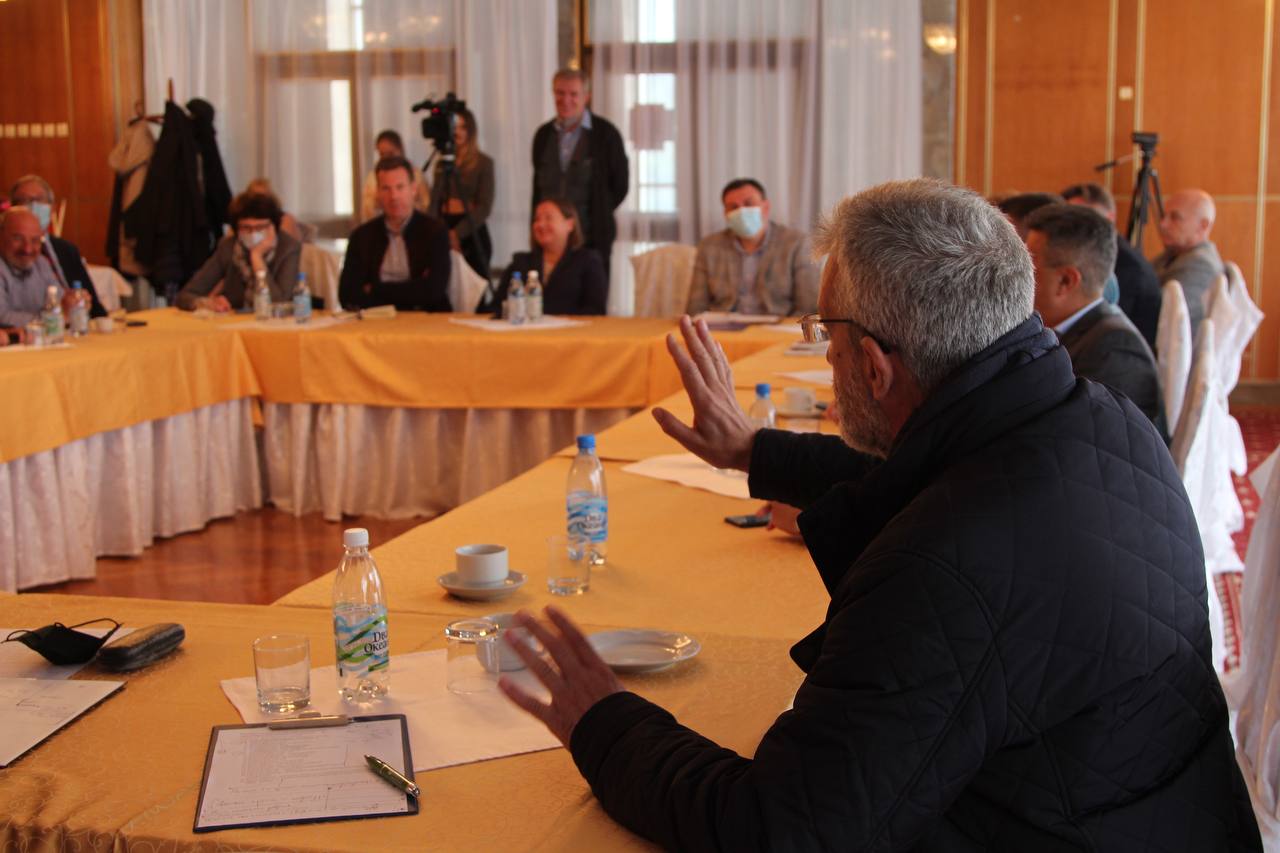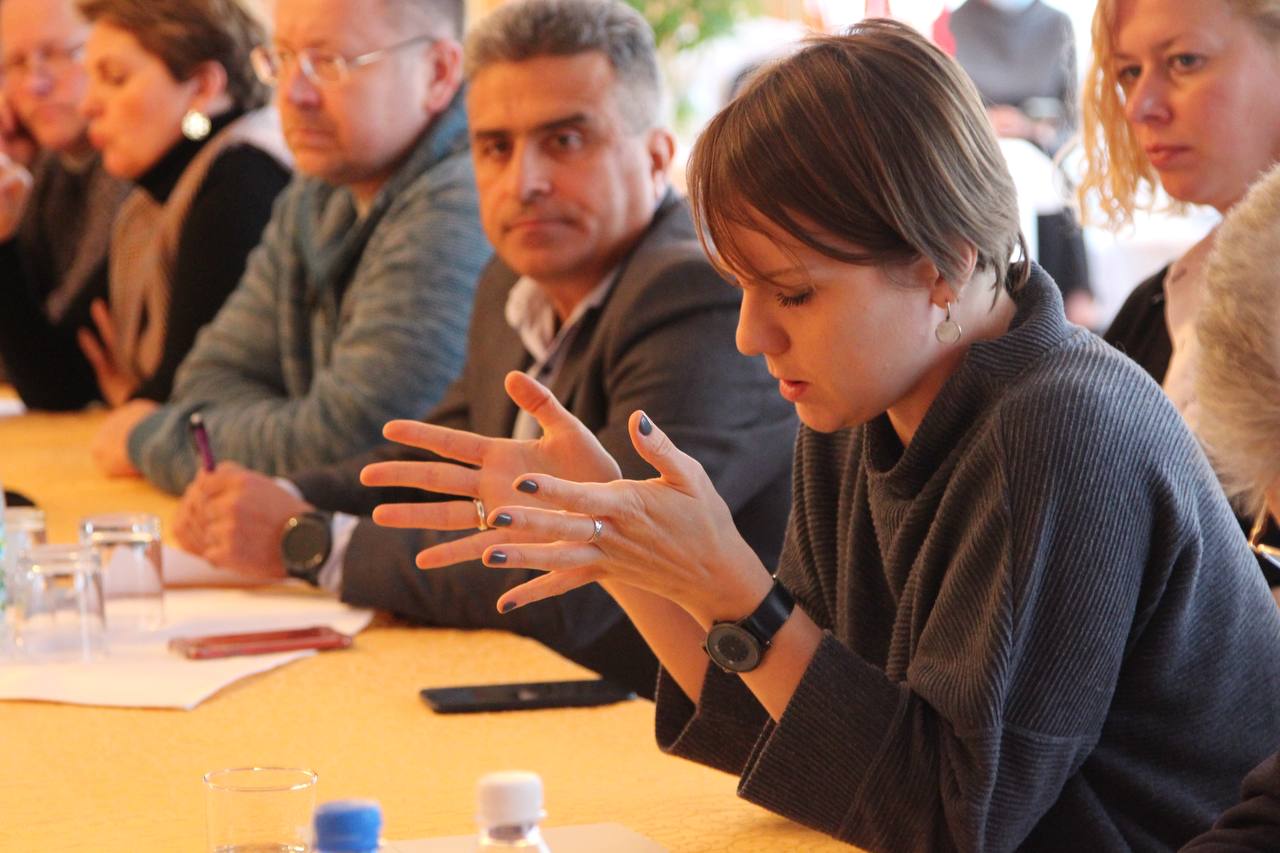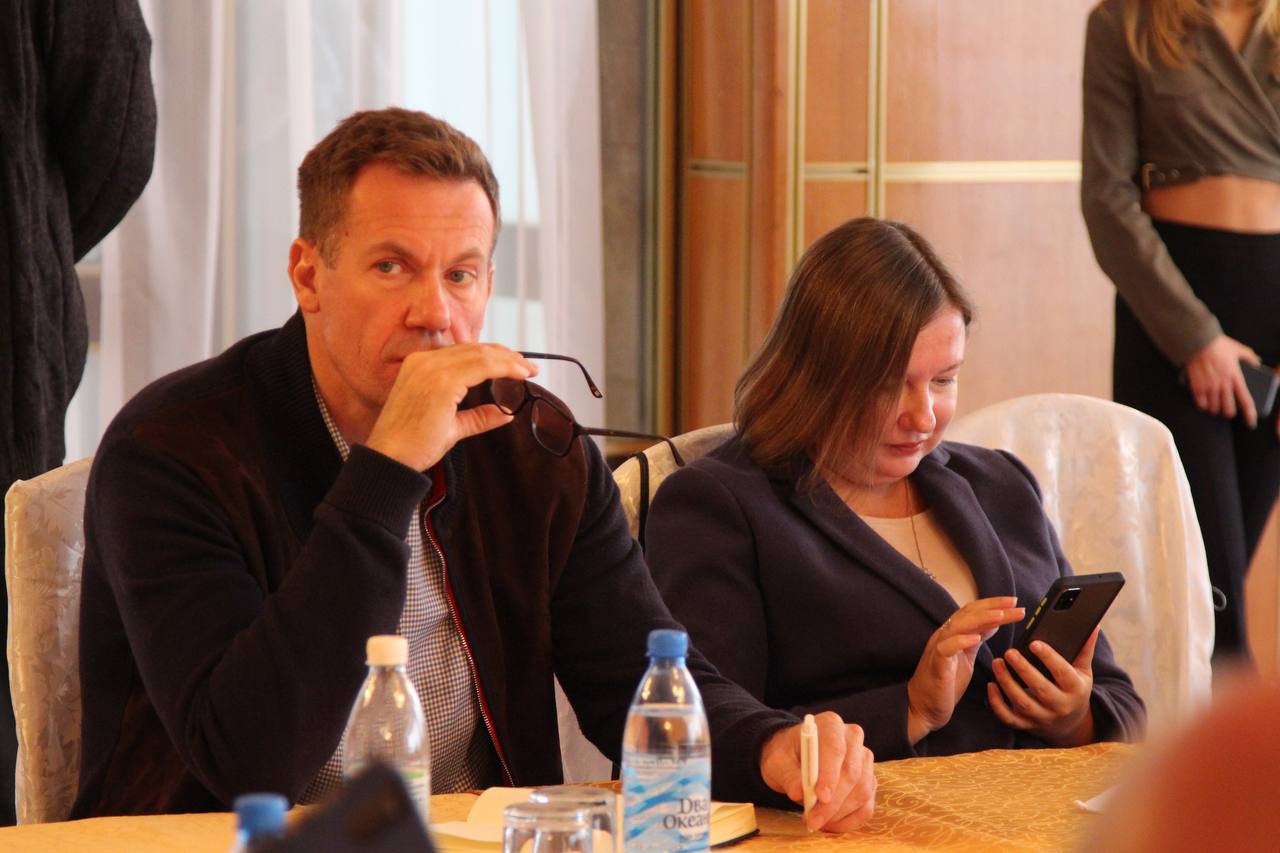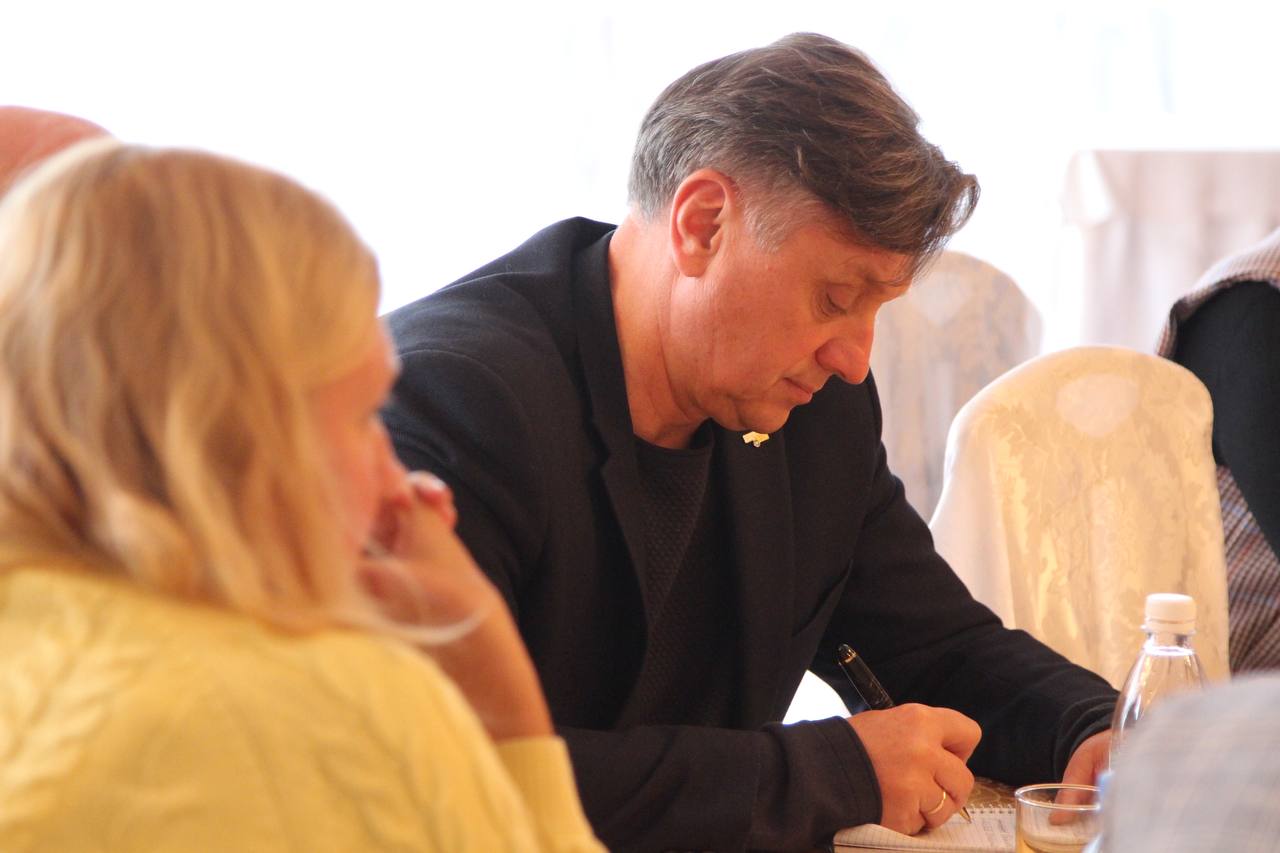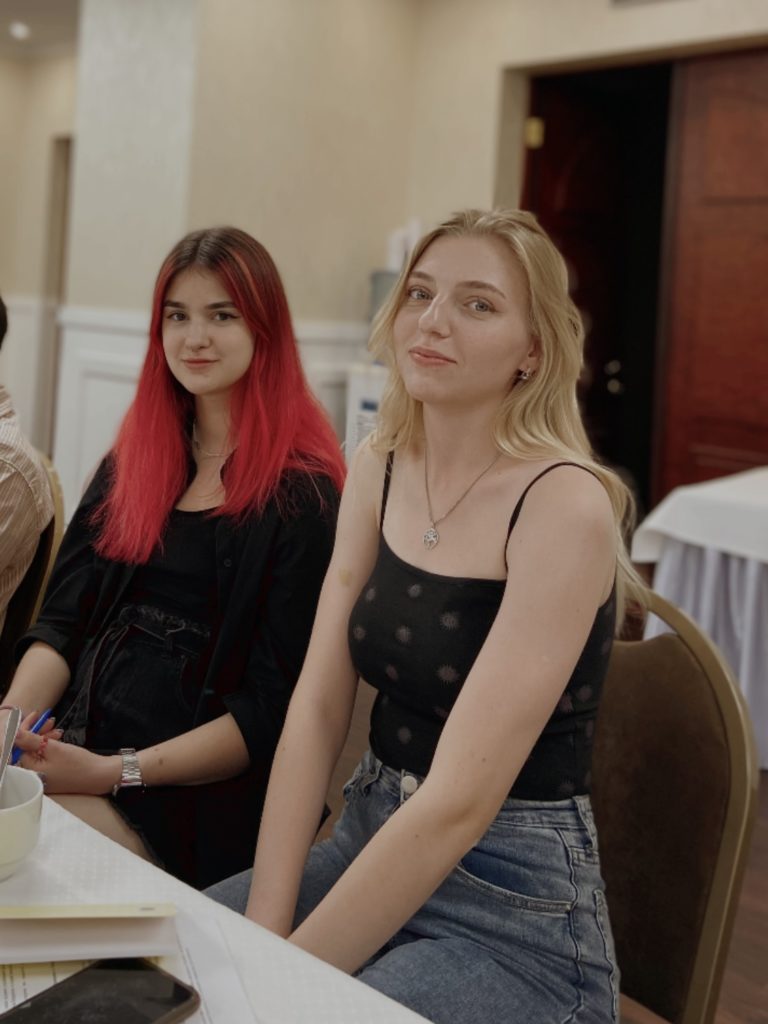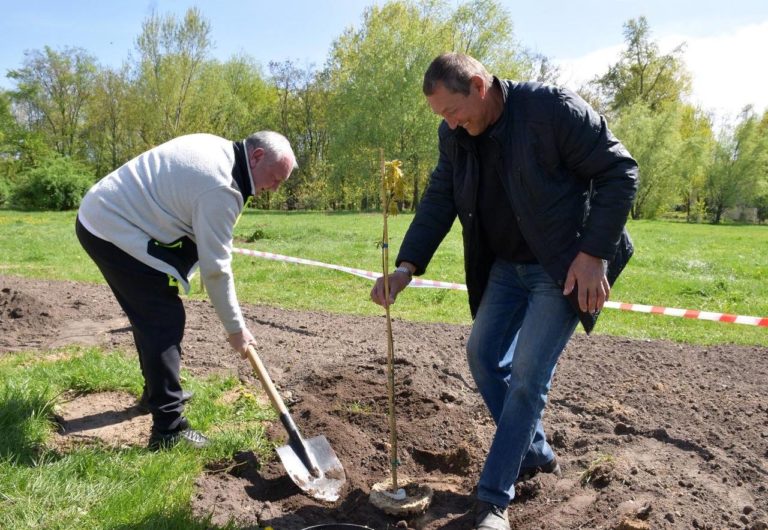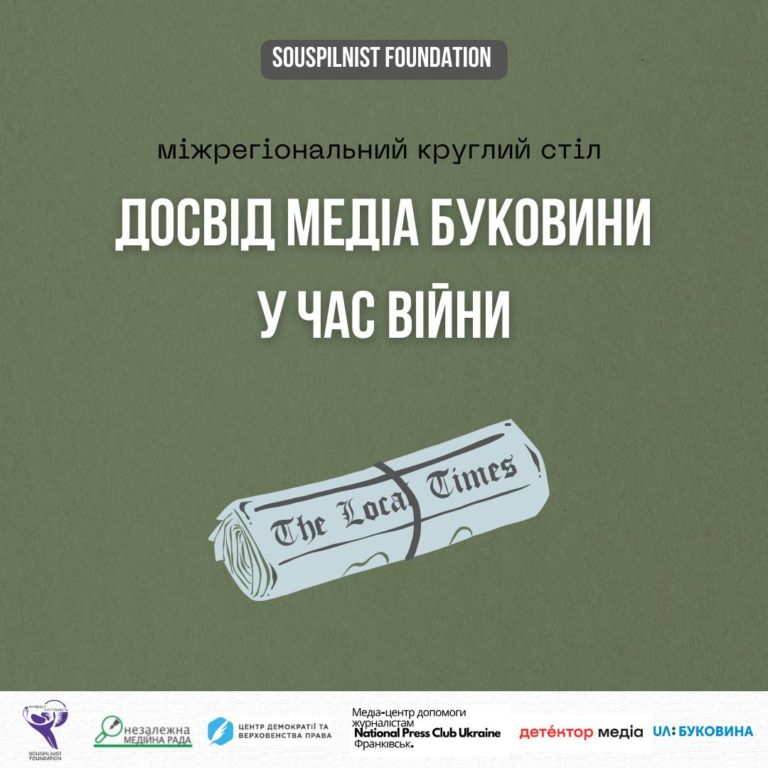Which is more important for today’s journalist: universalism or narrow knowledge of the topic? What should beginners focus on: academic education or “fieldwork”? Do university journalism programs meet the needs of the media market in training quality staff? – these and other questions were discussed during the roundtable “What kind of journalist is needed by the media market”
More than 20 experts participated in the discussion held within the walls of Taras Shevchenko National University of Kyiv, among them Ukrainian media managers and leading scholars in the field of journalism and mass communications research.
The main topic under discussion was the competencies that modern journalists should possess.
The participants agreed that academic education is an important component in training specialists because it makes sure that they learn basic skills and knowledge needed for an editorial job.
However, in the opinion of head of Public Interest Journalism Lab Nataliia Humeniuk there is an issue of adapting today’s university programs to present-day realities. Nowadays, it is important not only to provide classical basic knowledge but also to introduce new competencies, making them front and center. In particular, the market requires that programming basics and understanding the specifics of conflict journalism be made part of training programs.
In recent years, universities have been trying to catch up with the employers but have always been late. This should be changed, noted Nataliia Humeniuk.
In 5-7 years, the media market will be changing so much that it will end up needing media businessmen, those who will be able to produce projects themselves, attract funds, create content, noted Arsen Tsymbaliuk, a journalist at Ukraine 24.
Hence the question of whether the journalists can acquire practical skills. Olena Froliak, editor-in-chief of the ICTV Facts program, noted that practical training at universities calls for new approaches to ensure that newsrooms get universal journalists and then teach them narrow-focus knowledge and skills on the job.
You can become a journalist based on your education and based on practice if that practice is supplemented by education and education by work. It’s all about balance, added Andriy Kulykov, chairman of the board at Hromadske Radio.
The experts noted that despite existing challenges in the media sphere, it is now important that universities and newsrooms should work toward common solutions on training journalists, creating a modernization map of media education reform in line with media market demand.
According to Inna Kuznetsova, editor-in-chief at Radio Liberty’s Kyiv Office, newsrooms need universal journalists that do not fear doing grunt work like deciphering, video editing or getting rapid-fire interviews.
An important milestone can be dual education where educational institutions and particular newsrooms would train future specialists together.
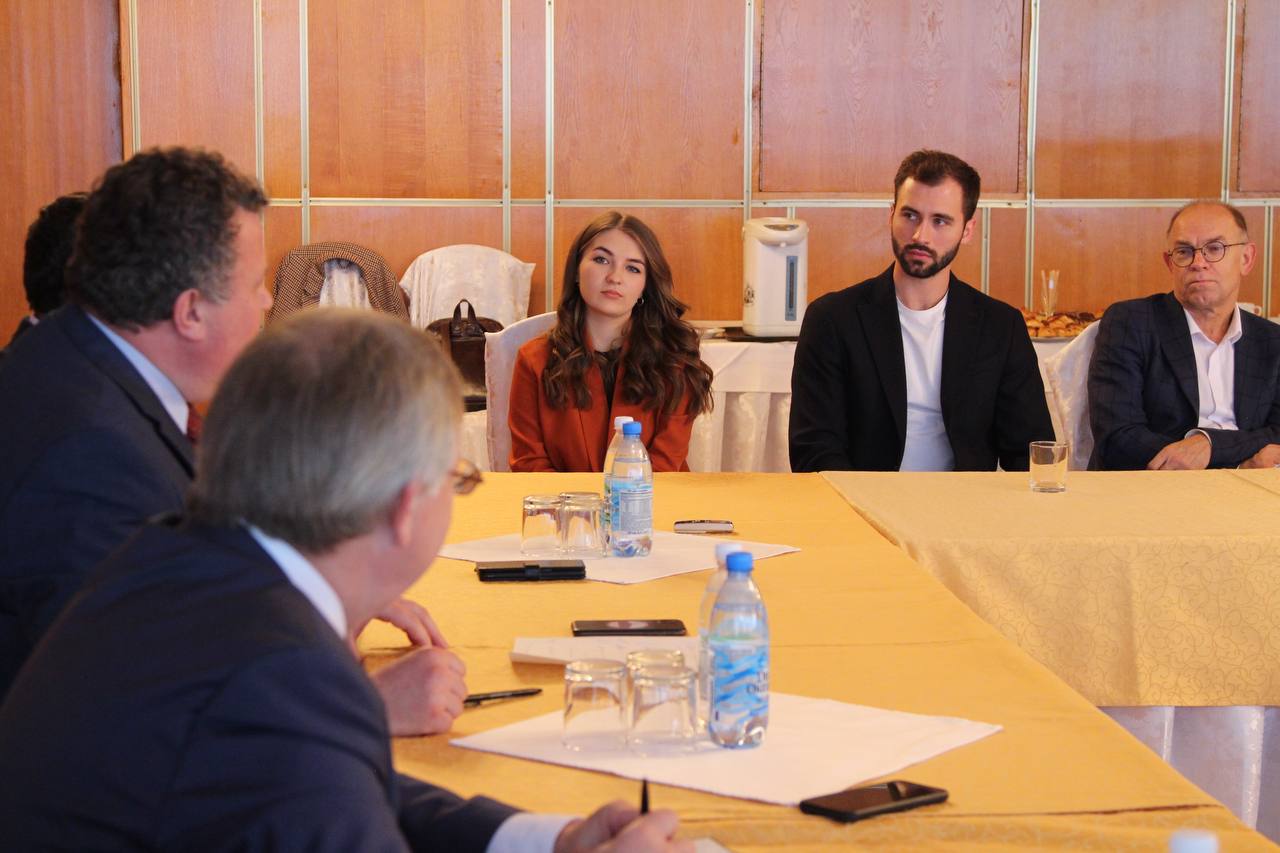
Journalism is a science, trade, and also an art. Not infrequently students start working in their freshman year, without getting sufficient knowledge. That’s why it’s important that we create a sort of bridge to ensure a balance of knowledge and practical skills when studying, noted Volodymyr Buhrov, rector of Taras Shevchenko National University of Kyiv.
The participants in the discussion emphasized the importance of enhancing the abilities and skills of today’s editors and reporters, updating the list of journalistic professions and competencies. Such results could be achieved by introducing pilot dual education programs that constantly combine academic learning with practice.
The experts also discussed the importance of providing definitions for journalism specialties in the higher education system, including the importance of separating training programs in journalism from those in PR and advertisement.
Based on the results of the roundtable, the participants started to work jointly on reformatting current journalistic professions and competencies, as well as on possible pilot dual education projects.
The roundtable was organized by Souspilnist Foundation as part of the National Press Club Ukraine with the support of the Independent Media Council.
